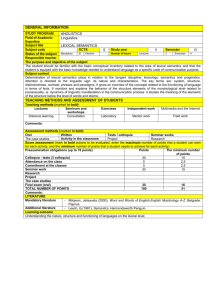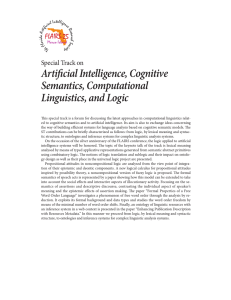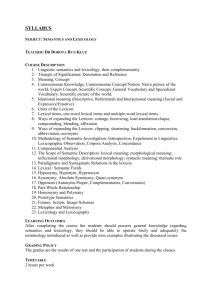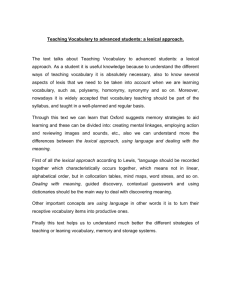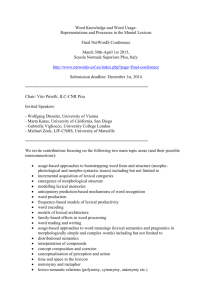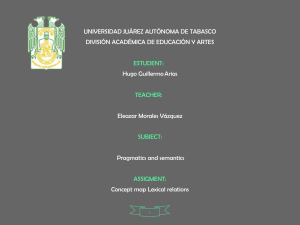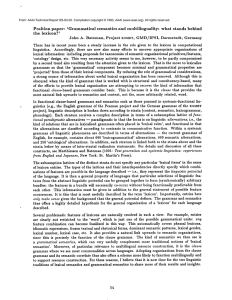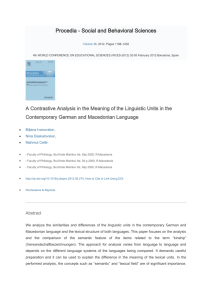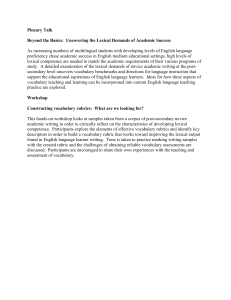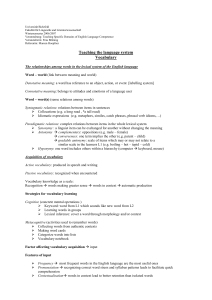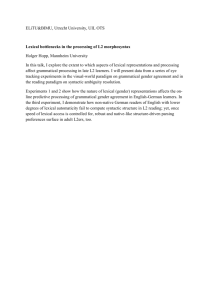Weaving the Lexicon with Qualia
advertisement
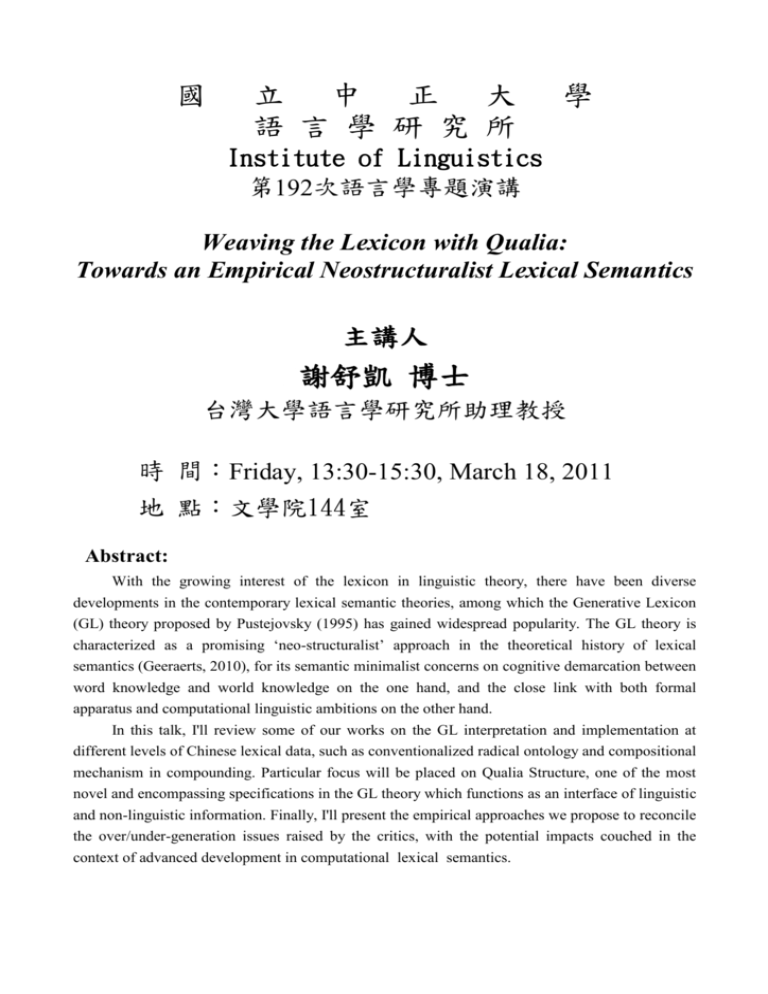
國 立 中 正 大 語 言 學 研 究 所 學 Institute of Linguistics 第192次語言學專題演講 Weaving the Lexicon with Qualia: Towards an Empirical Neostructuralist Lexical Semantics 主講人 謝舒凱 博士 台灣大學語言學研究所助理教授 時 間:Friday, 13:30-15:30, March 18, 2011 地 點:文學院144室 Abstract: With the growing interest of the lexicon in linguistic theory, there have been diverse developments in the contemporary lexical semantic theories, among which the Generative Lexicon (GL) theory proposed by Pustejovsky (1995) has gained widespread popularity. The GL theory is characterized as a promising ‘neo-structuralist’ approach in the theoretical history of lexical semantics (Geeraerts, 2010), for its semantic minimalist concerns on cognitive demarcation between word knowledge and world knowledge on the one hand, and the close link with both formal apparatus and computational linguistic ambitions on the other hand. In this talk, I'll review some of our works on the GL interpretation and implementation at different levels of Chinese lexical data, such as conventionalized radical ontology and compositional mechanism in compounding. Particular focus will be placed on Qualia Structure, one of the most novel and encompassing specifications in the GL theory which functions as an interface of linguistic and non-linguistic information. Finally, I'll present the empirical approaches we propose to reconcile the over/under-generation issues raised by the critics, with the potential impacts couched in the context of advanced development in computational lexical semantics.
